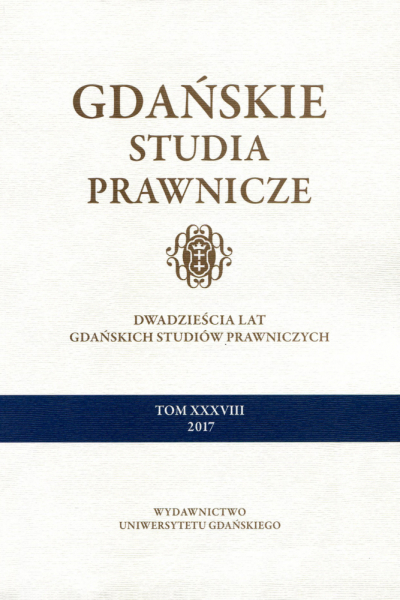Leges imperfectae w prawie
Leges Imperfectae in Law
Author(s): Jarosław NiesiołowskiSubject(s): Philosophy of Law, Sociology of Law
Published by: Wydawnictwo Uniwersytetu Gdańskiego
Summary/Abstract: The article is devoted to the phenomenon of leges imperfectae in law. The name and the associated normative solutions have a long tradition going back to the Roman times.However, the issue has not been subject to deepened researches and is considered to be marginal. The article presents views on this phenomenon presented in the polish legal studies. Regardless of the above, the subject of the analysis is both the nature of the statements which the legislator is using in case of leges imperfectae, as well as issues related to the concept of a legal sanction. The results of the research lead to the conclusion that the normativity of legislator’s expression, understood as the intention to have impact on the behavior of recipients, and the binding force have in contemporary law differential character and leges imperfectae should be located in the sphere of soft law, as a kind of directives, not deprived of the effective aspiration on the behavior of recipients. In case of leges imperfectae sanctions should be recognized linguistically, as a lack of announcement of legal sanctions on the basis of legislation. Analyses show, that the cause of leges imperfectae appearing in law may be an error in the field of law-making techniques, caused by forgetting to establish legal sanctions, as well as a rational action of legislator associated with the impossibility or inexpediency of providing legal sanctions. The inability of establishing legal sanctions will happen, for example, in constitutional law where an important role is played by even political sanctions. The futility of establishing legal sanctions can be observed in family and guardianship law. Due to the fact that marital relations as well as the relations between parents and children are a very delicate sphere of behavior, in which the legislator enters with a big moderation, taking into account the regulations from moral and religious rules related to this sphere. The futility of establishing legal sanctions will be present also in wider economic law because, as the experience has shown, the command and-control economy does not lead to the desired result.
Journal: Gdańskie Studia Prawnicze
- Issue Year: 2017
- Issue No: XXXVIII
- Page Range: 593-602
- Page Count: 10
- Language: Polish

